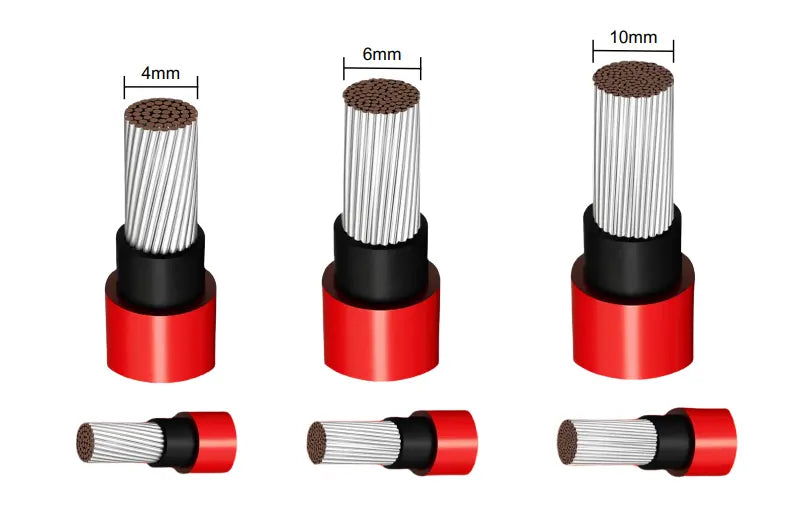When embarking on a solar panel installation, one critical decision is selecting the appropriate wiring. The choice between regular wire and PV (Photovoltaic) wire can significantly impact your system's efficiency, safety, and durability. Let's objectively examine the differences between these two types of wires to help you make an informed decision for your solar project.
What Are PV Cables?
PV cables, designed exclusively for solar power systems, are the lifelines that connect solar panels to inverters and batteries with high voltage and fire safety features. Engineered to perform exceptionally under extreme outdoor conditions such as heat, UV, corrosion, and more, PV cables are key to a solar system's efficiency and safety.
The Role of Normal Cables
Normal cables cater to a wide array of electrical needs but aren't tailored for the specific demands of solar power, lacking the necessary durability and specifications for outdoor solar applications.
Quick Comparison: PV Cable vs. Normal Cable
|
Feature |
PV Cable |
Normal Cable |
|
Use Case |
Specifically for solar systems |
General electrical purposes |
|
Outdoor Suitability |
Yes, designed for extreme outdoor usage. |
No, not built for prolonged outdoor exposure. |
|
Voltage Handling |
Optimized for high AC/DC voltage |
Designed for standard AC/DC voltage |
|
Durability |
High, with UV and temperature resistance |
Varies, generally less durable outdoors |
|
Safety Standards |
Meets stringent solar industry standards |
Meets general electrical standards, not specific to solar |
|
Conductor Material |
100% Copper. Better quality ones are tinned and stranded for corrosion protection and flexibility. |
Copper or aluminum |
When to Choose PV Wire:
- Outdoor Solar Installations: If you're setting up a solar system outdoors, PV wire is the superior choice due to its UV resistance, weatherproof qualities, and ability to handle temperature fluctuations.
- High Voltage DC Applications: Solar panels generate DC electricity, often at high voltages. PV wires are designed to handle these voltages safely, making them indispensable for solar installations.
- Long-Term Investments: Given their durability and specialized design, PV wires are ideal for solar systems where long-term reliability is a priority.
When Normal Cable Isn't Suitable:
- Incompatible with Outdoor Conditions: Normal cables should not be used in environments where they will be exposed to sunlight, moisture, or extreme temperatures, as they lack the necessary protective features.
- Inadequate for High Voltage DC: Normal cables are not designed to handle the high DC voltage produced by solar panels, posing a safety risk and potential system inefficiency.
Choosing the right cable for your solar system is more than a technical decision; it's a commitment to your system's future performance and reliability. PV cables offer peace of mind, knowing your setup is equipped to harness the sun's power efficiently and safely.
For your next solar project, remember the key points from our comparison, and consider how the right cable choice can enhance your system's operation. Dive into our selection of top-quality PV cables and gear up for a successful solar journey.
Disclaimer:
This guidance is for informational purposes. Always leverage your expertise and adhere to local regulations when selecting cables for your solar projects. Consult a professional for situations that exceed general advice to ensure safety and compliance.






